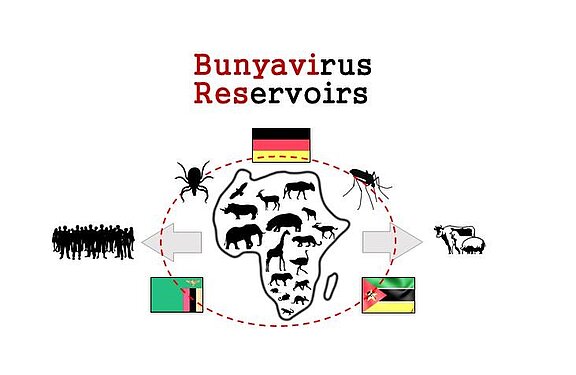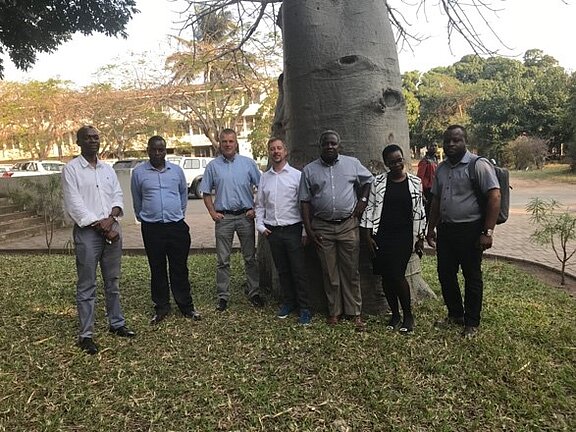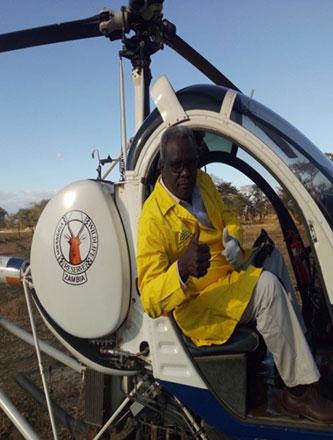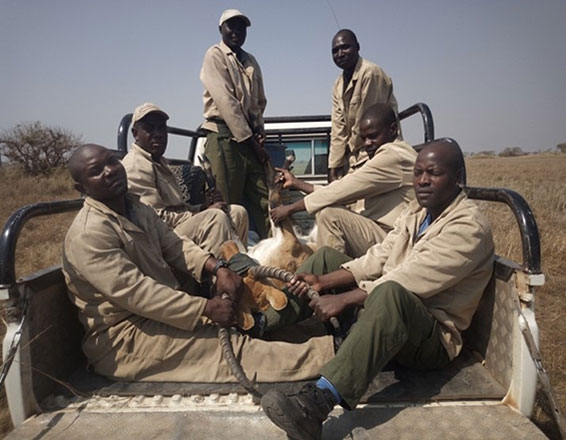The life cycles of mosquito and tick-borne zoonotic viruses of the order Bunyavirales are not yet bsi understood, despite their widespread occurrence in sub-Saharan Africa. For this reason, the consortium (consisting of the Central Veterinary Research Institute in Lusaka, Eduardo Mondlane University, Maputo and FLI) is studying the epidemiology of the highly pathogenic Rift Valley Fever (RVF) and Crimean-Congo Hemorrhagic Fever (CCHF) viruses in Mozambique and Zambia, which infect humans as well as wildlife and livestock and can cause fatal hemorrhagic fever in humans. RVFV is transmitted by a variety of mosquitoes, while CCHFV replicates and is transmitted in shield ticks. The main interest is the role of enzootic transmission cycles between competent vectors and reservoir wildlife, as well as delineating the biotic and abiotic conditions under which endemic occurrence evolves into epizootic and even zoonotic events.
To this end, field trapping and sample collection from the various species involved in the transmission cycle will be conducted in three regions where RVFV and CCHFV outbreaks have occurred or are likely to occur. Exposure to and presence of the viruses in livestock, arthropod vectors, and wildlife will be determined using the latest diagnostic techniques developed and tested at FLI. Molecular screening of vector blood meals will measure the identity, frequency and relative abundance of the different blood hosts in a spatial, environmental and seasonal context.
The respective immunological or infection status of wildlife reservoirs will be used to elucidate how pathogens circulate at low levels in inter-epidemic time before events then expand to epidemic proportions under appropriate conditions. Apart from the scientific interest, the project also aims at capacity building and knowledge and technology transfer to the African partners. Wherever it makes sense, the investigations will be carried out directly at the partners' sites.
Involved INNT scientists:
Dr. Markus Keller
Dr. Martin Eiden
Prof. Dr. Martin H. Groschup
Dr. Ansgar Schulz (PostDoc)





